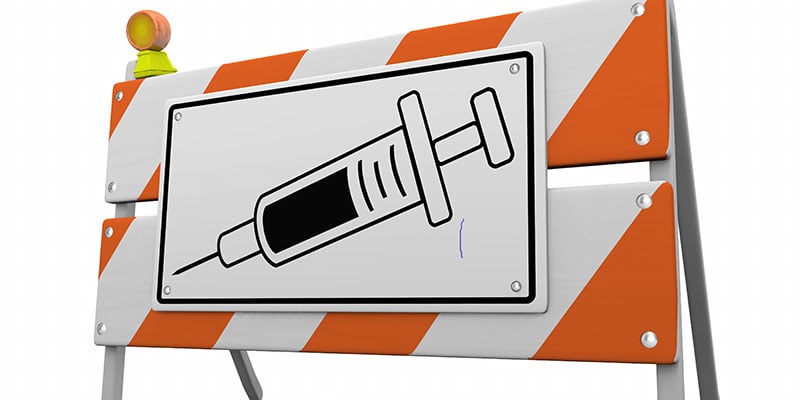How will COVID-19 vaccines impact the construction industry?
ArticleFebruary 5, 2021
To mandate or not to mandate? That is just one of the many questions facing employers as COVID-19 vaccines become available to their employees in 2021.
Arthur J. Gallagher hosted an online townhall-style meeting with some of its Chicago-area construction customers and prospective customers recently to address those questions and shed some light on the path forward as the world emerges from the pandemic.
Joining Gallagher participants on the panel were Chicago-area construction and labor leaders, a labor and employment attorney, a doctor specializing in occupational health and three veteran Risk Engineers from Zurich North America: James Boileau, Clayton Shoup and Gene Zolezzi.
The panelists noted that the construction industry has remained essential during the pandemic and, in fact, has helped keep the U.S. economy afloat while other industries have suffered. The rollout of effective vaccines offers hope to an industry that relies on collaboration, which makes social distancing a challenge.
Lawyers on the panel discussed the legal ramifications of requiring employees to get vaccinated before returning to the workplace. Others questioned the efficacy of COVID-19 testing, which seemed unreliable during the early stages of the pandemic but has since improved.
Boileau, a Senior Risk Engineer with Zurich North America, emphasized the need to educate employees about the facts—and the fiction—of the new COVID-19 vaccines.
“It’s critical that employees have access to the best information to help them understand the risks and rewards of vaccination,” he said. “It’s also important that they hear from company leaders.”
Boileau cautioned that business leaders should not offer medical advice. Instead, they can steer employees to reliable sources to help keep them informed.
If companies are planning to offer COVID-19 vaccines to their employees, Boileau said they should be administered by an accredited third-party firm that specializes in vaccinations and is prepared to follow all safety protocols.
Finally, construction professionals can’t lose sight of their ultimate goal, which is to satisfactorily complete their projects on time and within budget, while also keeping workers safe. COVID-19 protocols add a challenging twist to this equation. Works in progress need to be secured and made safe for crews during shift changes and for those returning to job sites.
Also, as vaccinations spread across the country, CDC protocols must be maintained until it is deemed safe for all workers. That means most construction workers will need to continue wearing masks, practice social distancing and wash their hands often.
